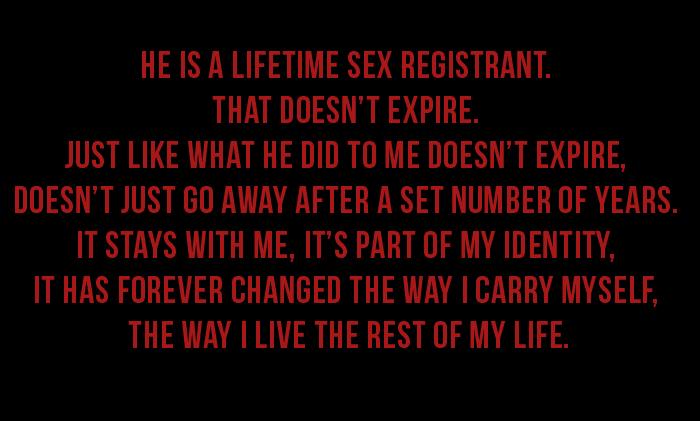Sexual assault is a crime that transcends race and class — unless it goes through the American legal system.
On January 18, 2015, Brock Turner, a 19-year-old Stanford student athlete, sexually assaulted a young woman identified as “Emily Doe” behind a dumpster. The 23-year-old woman was unconscious when two bikers discovered the assault and pinned the perpetrator down after he attempted to flee the scene.
With physical evidence, witnesses and an intoxication level making her unable to consent, the victim had an indisputably strong case against the former student. But the court failed to provide justice for her and chose the perpetrator’s future over the victim’s safety.
The jury unanimously found Turner guilty of three felonies related to sexual assault, and prosecutors suggested a sentence of six years in state prison or more, with the maximum he could serve for his offense being 14 years. Instead, the judge sentenced Turner to a mere six months of county jail and registration as a sex offender.
The judge took into account his clean record, media attention and prestigious background as a student and athlete, claiming that a harsher sentence would have “a severe impact on him” — never mind the severe impact that the victim has faced.
Apparently there is too much at stake for an all-star, white American swimmer to be accountable for a serious crime he committed.
While the case has garnered national attention and outrage for the light punishment, the sentence highlights the prominent role race and class has in our criminal justice system. If Turner was a low-income, uneducated male of a different race, his sentence may have significantly differed, likely changing the outcome of his entire life.
When poverty and racial background have become the one-way ticket into the criminal justice system, we need drastic reform to break this vicious cycle. The fact that the judge used such factors to give him a lighter sentence is a textbook example of how our justice system favors those who can afford a safer and privileged background.
The institutional racism that gives people of color harsher sentences for similar crimes only reaffirms the privilege Turner received for his punishment.
According to a 2015 report by the Bureau of Justice Statistics, black males receive harsher sentences than white males after accounting for the facts surrounding the case, a gap that has grown over the past decade.
The American Civil Liberties Union reported that sentences imposed on black males in the federal system are nearly 20 percent longer than those imposed on white males guilty of similar crimes.
Furthermore, class inequality has always been a key driver of our ever-increasing prison populations. The United States is infamous for having the highest incarceration rate in the world, yet there is little awareness of how much income level comes into play.
Several common prison practices unfairly place additional punishments on the poor by threatening jail time for not paying fines, high bail rates accompanied by predatory bail bondsmen, for-profit prison fees and denying access to essential services once they are released. Opportunities such as financial aid, education, housing loans, employment and social services are all severely limited if one has a criminal past they cannot financially afford to overcome.
The Prison Policy Initiative, a nonpartisan nonprofit research firm, reported in 2014 that because low-income people cannot afford bail, 11 million unconvicted people cycle through local jails each year.
The system fails to address the disproportionate rates that people of color and low-income citizens face, leaving them a lifetime of failure.
Furthermore, they found that incarcerated people had a median annual income of $19,185 prior to their incarceration, which was 41 percent less than non-incarcerated people.
When the color of people’s skin and the amount of money in their pockets has a broader impact over a punishment than the severity of a crime, we are robbing our people of justice.
Such factors should not be considered in one’s sentencing, given the clear disadvantages that poverty, crime and a history of racism has in this country — yet somehow we see this all the time.
Even media use of pictures with Turner smiling in suits rather than the mug shot his crime earned him create the image of a successful, Olympic-potential Stanford student, not the rapist he is. It exemplifies the bias we have for criminals of privileged backgrounds, and it is unfair to both victims and anyone outside of that box.
In an eloquent, heartfelt letter the victim wrote for her impact statement, she perfectly dismantles the unjust treatment that occurs when it comes to punishing sexual assault.
“The seriousness of rape has to be communicated clearly, we should not create a culture that suggests we learn that rape is wrong through trial and error. The consequences of sexual assault needs to be severe enough that people feel enough fear to exercise good judgment even if they are drunk, severe enough to be preventative,” she wrote. “The fact that Brock was a star athlete at a prestigious university should not be seen as an entitlement to leniency, but as an opportunity to send a strong cultural message that sexual assault is against the law regardless of social class.”
Women will never be equal to men in society until sexual assault crimes are punished to their fullest extent. People of color will never be truly equal to whites in this country until incarceration rates do not vary by their skin color. Poor people will never be equal to their affluent counterparts until their income stops exerting unfair pressure on their criminal records.
Our legal system breeds inequality and it’s our duty to address it.
Turner and criminals like him should pay for their actions. After all, they’re the ones most able to afford it.
Kirsten Wong is the The Pitt News’ Opinions Editor. She primarily writes on social justice issues and public policy for The Pitt News.
Write to her at [email protected]



